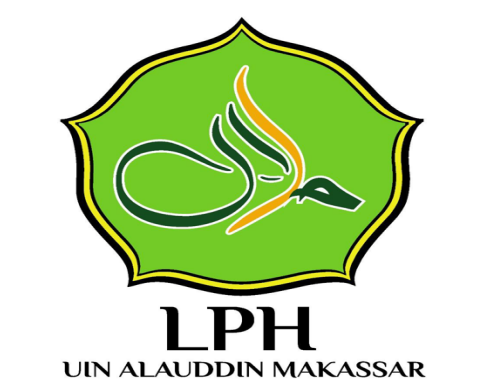The Urgency of Monitoring the Circulation of Products After Halal Certification
Recently, the Indonesian public was once again shocked by the news that products containing pork have been widely circulated in the community. Alarmingly, 7 out of the 9 products in question had already been certified halal by the Halal Product Assurance Organizing Agency (BPJPH). Among these products are Corniche Fluffy Jelly, Corniche Apple-Flavored Teddy-Shaped Marshmallow, Chomp Chomp Car Mallow (car-shaped), Chomp Chomp Flower Mallow (flower-shaped), Chomp Chomp Mini Tube-Shaped Marshmallow, Hakiki Gelatin, and Larbe - TYL Marshmallow with Vanilla Filling.
Meanwhile, 2 of the products have not been halal-certified but were still widely distributed. These products also failed to comply with legal regulations which require that non-halal products must clearly display a statement indicating that they are not halal, as stipulated in Law Number 33 of 2014 concerning Halal Product Assurance. The products in question are AAA Orange-Flavored Marshmallow and WEETIME Chocolate-Flavored Marshmallow.
This kind of case is not the first time it has occurred in Indonesia. A similar incident once shocked the Indonesian public back in 1998, involving a flavor enhancer product manufactured by PT. Ajinomoto. The product had previously been granted halal certification on September 30, 1988. However, during the process of renewing the halal certificate, the Indonesian Ulema Council's Food, Drug, and Cosmetics Assessment Agency (LPPOM MUI) discovered that the halal-certified Ajinomoto product was in fact found to contain pig-derived enzymes. (Nur Khusna Khanifa et al., 2020).
As is often the case, reports regarding the circulation of products that have been certified halal but are later found to contain haram substances not only cause public shock but also provoke significant concern and anxiety among the Muslim population in Indonesia. This concern is particularly felt by parents, as the products in question appear to be targeted primarily at children, based on their type and presentation. The findings jointly released by the Halal Product Assurance Organizing Agency (BPJPH) and the Food and Drug Monitoring Agency (BPOM) have not only raised alarm but also sparked questions and skepticism from the public—particularly directed at BPJPH, which currently holds the sole authority to issue halal certificates.
This situation raises a critical question: is this a case of oversight or negligence? How could a product containing pork-derived ingredients receive halal certification? If such questions and the underlying issues are not promptly addressed, there is a significant risk that this incident will tarnish the image of, and generate negative sentiment toward, all stakeholders involved in the halal certification program—especially BPJPH. Ultimately, this could erode public trust in the halal certification process, which is actively being promoted by the government.
The Role of BPJPH as a Regulator
It must be acknowledged that the Halal Product Assurance Organizing Agency (BPJPH) is a non-ministerial institution mandated by law with several authorities, one of which is the issuance and revocation of halal certificates for products. This means that any product that has been officially certified as halal has undergone a series of examinations and has been determined to meet the required standards.
However, in order for BPJPH to issue a halal certificate for a product, it must go through a stringent procedure involving multiple parties. In the regular certification pathway, for example, the process must involve a Halal Inspection Agency (LPH), which includes auditors responsible for thoroughly inspecting the ingredients used (raw materials, additives, and auxiliary materials), the equipment used, and the production process of each product applying for halal certification. Subsequently, the process also involves the fatwa committee/commission of the Indonesian Ulema Council (MUI) at the provincial level where the product originates. This fatwa body is responsible for determining the halal status of a product through a fatwa deliberation session after receiving reports and hearing explanations and findings from auditors who have conducted field audits.
Meanwhile, for the Self-Declare pathway, the process must involve LP3H (Halal Product Process Assistance Institution), P3H (Halal Product Assistance Personnel), and the fatwa committee of BPJPH itself, which is also tasked with determining the legal (halal) status of a product undergoing certification through this self-declaration mechanism.
As the frontline institution, BPJPH issues halal certificates only after products have undergone a rigorous examination process and have been deemed to have passed the fatwa deliberation session either by the Fatwa Committee of the Indonesian Ulema Council (MUI) or by the Fatwa Committee of BPJPH. This indicates that the issuance of a halal certificate involves multiple parties and must be carried out in accordance with procedures that are strict, thorough, transparent, and accountable. Therefore, BPJPH does not issue halal certificates arbitrarily or irresponsibly.
In relation to the recent discovery that a halal-certified product was found to contain pork-derived ingredients, based on the explanation above, it can be concluded that the error does not lie with BPJPH in its capacity as the authorized regulator. As a major institution granted significant authority by law, BPJPH adheres to clear standard operating procedures (SOPs) and well-defined regulations that guide its actions.
Hence, the fault is strongly suspected to lie with unscrupulous and irresponsible business actors. For instance, during the halal certification application process, the samples of materials, equipment, and production processes submitted and demonstrated by the business operator (PU) may have fully complied with the requirements and were declared free from haram and prohibited substances.
Furthermore, auditors and the Ulema Council responsible for issuing halal fatwas would not take the matter lightly in making their recommendations. They will only issue a halal fatwa after ensuring that every aspect complies with Islamic law, as the decisions they make affect the wider public and their accountability extends not only to the government and institutional leadership but ultimately to the Creator Himself.
Therefore, it is highly reasonable to suspect that the full extent of the fault lies with the business owner who failed to act honestly and consistently with the commitments previously agreed upon to maintain the halal integrity of their products. It is possible that the business owner engaged in fraudulent practices—presenting halal-compliant products, ingredients, equipment, and production processes during the certification phase, but subsequently, after obtaining the halal certificate, began using non-halal materials. These actions may have been driven by various motives, interests, or personal gains, all at the expense of consumer rights and ethical responsibility.



